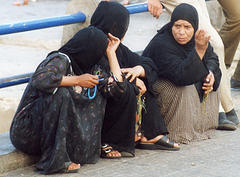
Heroic Lebanese Fight for Election Seeking Radical Reform Despite Myriad Challenges All Around
Arab Spring in Lebanon | Democracy, elections and voting at Democracy Chronicles
The situation in Lebanon has been frustrating at times but it seems as if opinion might shift towards more representative democracy. The following is an excerpt from the New York Times article about a country that has wrestled with it’s history for a long time.
“Since the Taif agreement of 1989, which helped end the civil war, half of Parliament has been reserved for Christians, the other half for Muslims, with each half distributed among 11 of Lebanon’s 18 officially recognized sects (Maronite, Greek Orthodox, Protestant, Sunni, Shiite, Druze, Alawite, etc). Each of Parliament’s (pdf) 128 seats is sect-specific: only members of that sect can run for it. (Voters, however, can cast their ballot for every seat in their district regardless of their own religious affiliation.) The president must be a Maronite, the prime minister a Sunni and the speaker of Parliament a Shiite. Hundreds of bureaucratic appointments are also subject to sectarian apportionment under the Constitution.”
Leave a Reply